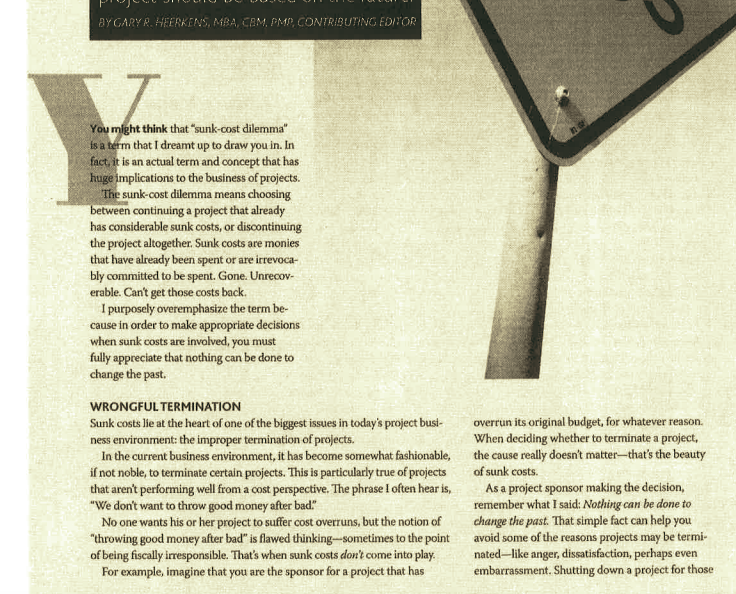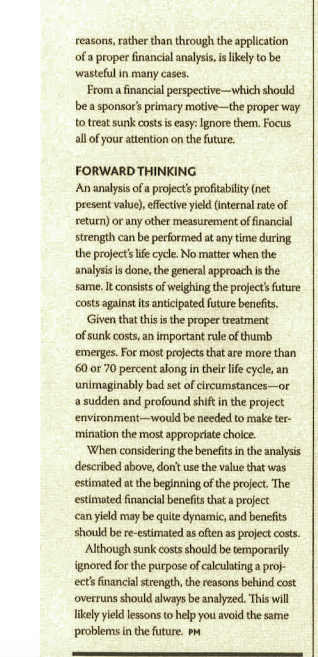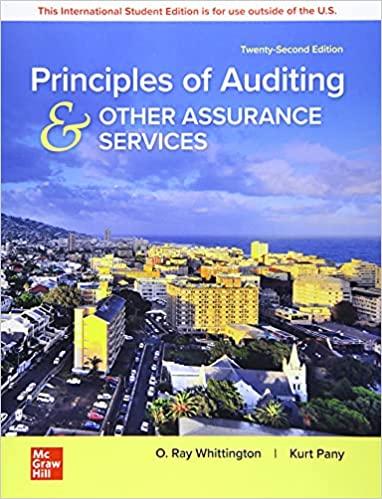Answered step by step
Verified Expert Solution
Question
1 Approved Answer
Read this and share the major insights/lessons you learned from reading this article. Also, try to remember a case or situation in your professional or


Read this and share the major insights/lessons you learned from reading this article.
Also, try to remember a case or situation in your professional or business life, where you have experienced such a "sunk cost dilemma". Share the situation and the outcome. Discuss if you feel this situation was handled appropriately at that time or what you would have done differently.
aY GARYHEERKINS, MBA, CAM, PMP, CONTRIBUTING EDWOR You might think that "sunk-cost dilemma' is a term that I dreamt up to draw you in. In fact, it is an actual term and concept that has huge implications to the business of projects. The sunk-cost dilemma means choosing between continuing a project that already has considerable sunk costs, or discontinuing the project altogether. Sunk costs are monies that have already been spent or are irrevoca- bly committed to be spent. Gone. Unrecov- erable. Can't get those costs back. I purposely overemphasize the term be- cause in order to make appropriate decisions when sunk costs are involved, you must fully appreciate that nothing can be done to change the past. WRONGFUL TERMINATION Sunk costs lie at the heart of one of the biggest issues in today's project busi- ness environment: the improper termination of projects. In the current business environment, it has become somewhat fashionable, if not noble, to terminate certain projects. This is particularly true of projects that aren't performing well from a cost perspective. The phrase I often hear is, "We don't want to throw good money after bad." No one wants his or her project to suffer cost overruns, but the notion of "throwing good money after bad" is flawed thinking--sometimes to the point of being fiscally irresponsible. That's when sunk costs don't come into play. For example, imagine that you are the sponsor for a project that has overrun its original budget, for whatever reason When deciding whether to terminate a project, the cause really doesn't matter--that's the beauty of sunk costs. As a project sponsor making the decision, remember what I said: Nothing can be done to change the past. That simple fact can help you avoid some of the reasons projects may be termi- nated-like anger, dissatisfaction, perhaps even embarrassment. Shutting down a project for those reasons, rather than through the application of a proper financial analysis, is likely to be wasteful in many cases. From a financial perspective-which should be a sponsor's primary motive-the proper way to treat suink costs is easy: Ignore them. Focus all of your attention on the future. FORWARD THINKING An analysis of a project's profitability (net present value), effective yield (internal rate of return) or any other measurement of financial strength can be performed at any time during the project's life cycle. No matter when the analysis is done, the general approach is the same. It consists of weighing the project's future costs against its anticipated future benefits. Given that this is the proper treatment of sunk costs, an important rule of thumb emerges. For most projects that are more than 60 or 70 percent along in their life cycle, an unimaginably bad set of circumstances-or a sudden and profound shift in the project environment-would be needed to make ter- mination the most appropriate choice. When considering the benefits in the analysis described above, don't use the value that was estimated at the beginning of the project. The estimated financial benefits that a project can yield may be quite dynamic, and benefits should be re-estimated as often as project costs. Although sunk costs should be temporarily ignored for the purpose of calculating a proj- ect's financial strength, the reasons behind cost overruns should always be analyzed. This will likely yield lessons to help you avoid the same problems in the future. PMStep by Step Solution
There are 3 Steps involved in it
Step: 1

Get Instant Access to Expert-Tailored Solutions
See step-by-step solutions with expert insights and AI powered tools for academic success
Step: 2

Step: 3

Ace Your Homework with AI
Get the answers you need in no time with our AI-driven, step-by-step assistance
Get Started


